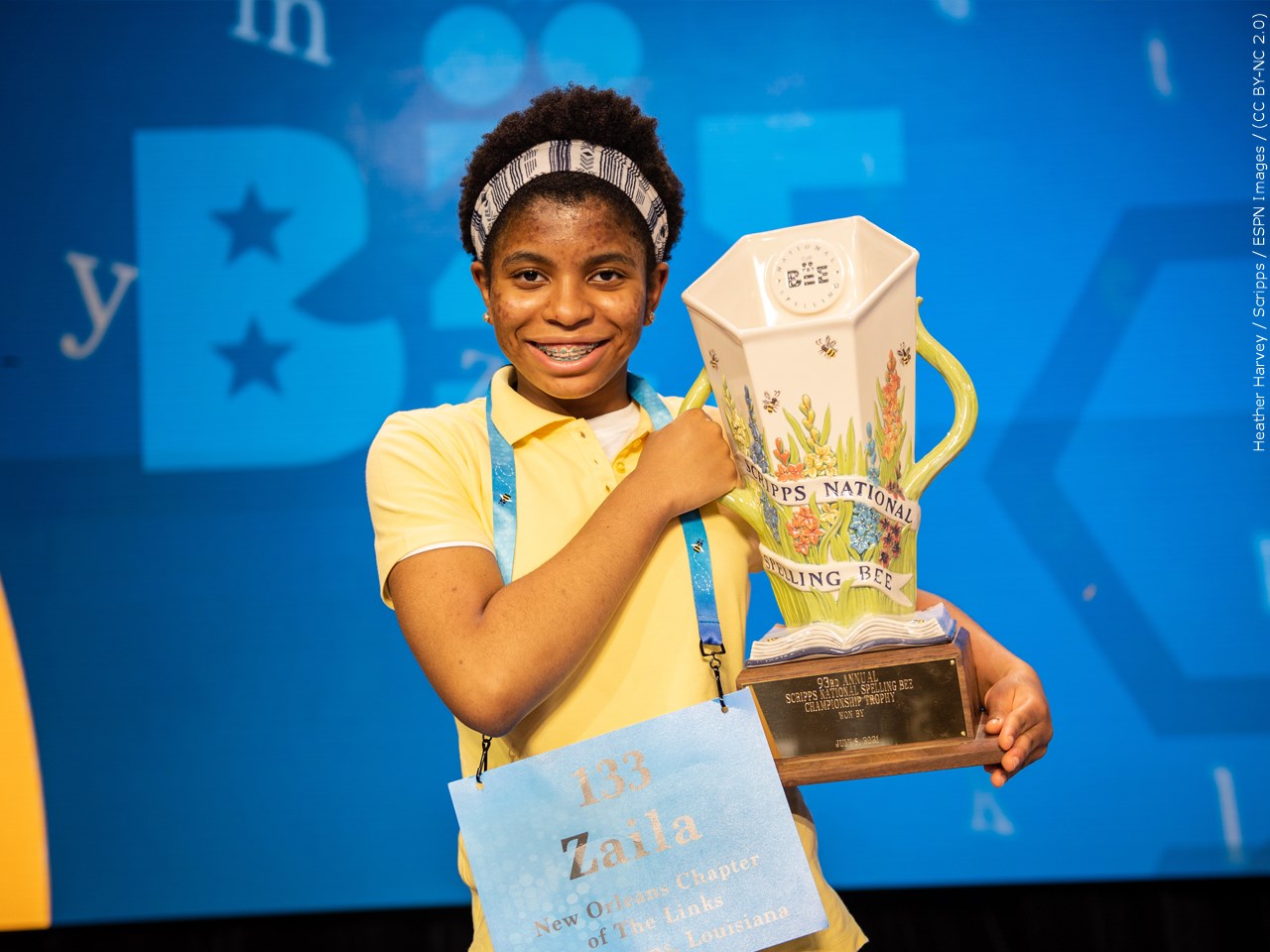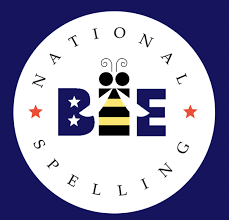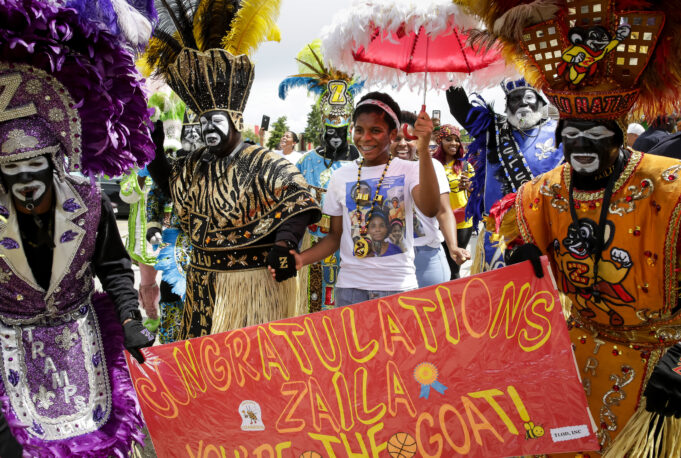New Orleans could not contain its excitement after Zaila Avant-garde became first Black American Scripps National Spelling Bee winner. She was welcomed to her Harvey home with a parade comparable to the city’s annual Mardi Gras.
Fire engines, police cars and horses filled the streets July 18 in a drive-by parade to support the young champion. From New Orleans to her hometown, many people wore t-shirts in her honor, blew horns and whistles and congratulated her for making history. Balloons, music and a special performance by the Zulu Tramps, a New Orleans century-old marching club, danced beside her on the way to celebrate at Woodmere Café. The Zulu’s presented the 14 year old with a medallion.
The spelling bee champion is also thriving in her aspiration as a basketball player. She set several Guinness World Records for dribbling and juggling basketballs at the same time and made an appearance in NBA star Stephen Curry’s 2018 commercial. She told news sources, “Basketball is what I do.” She hopes one day to play in the WNBA or coach in the NBA.
Many have expressed their joy and pride seeing Zaila excel at what she loves. On Instagram she gained over 14,000 followers and the admiration of countless youth viewers. Husband and wife Alisha Tinson Henry and Larry “Duce” Henry Jr. of D&A Henry Designz even gifted her with a custom pair of shoes with her name on them.

Zaila said she felt “really good” on the night she competed against 208 spellers ranging in age from 9-15 and broadcast live across the country. She took home the spelling bee’s $50,000 cash prize.
Her winning word was “Murraya,’’ a genus of tropical Asiatic and Australian trees. She spelled it with such ease and confidence that she knew she was the winner.
“I was pretty relaxed on the subject of Murraya and pretty much any other word I got,” Zaila said.
Zaila joined the distinct group of Black competitors that includes MacNolia Cox, who in 1936 became the first Black finalist at the bee faced segregation every step of the way from riding in the “colored” car of the train to get to Washington, D.C., not being allowed to stay in the same hotel with the other contestants, to using the back door of the arena to get into the Bee and being forced to sit at a card table once inside. Jody-Anne Maxwell won the bee from Jamaica in 1998.
For decades the bee has been a rainbow coalition of spellers with pre-teens and teens of South Asian descent dominating the competition. Zaila’s win broke a streak of at least one Indian American champion every year since 2008.
“Becoming a successful speller like Zaila, it’s genetic in some regard, but it requires early reading skills, starting children with reading at age one and two. It means introducing them to phonetic awareness skills and phonics skills at an early age,” Atlanta elementary teacher and reading coach SaBrina Washington told The Final Call.

“I’ve always noticed that the best spellers in my class are those whose parents worked with them early. Spelling bees take a lot of concentration, a lot of dedication, a lot of discipline, and a lot of study. Competitors need a tutor. They basically practice with them as if they were practicing with a coach.”
Zaila entered the spelling world later than most who start in kindergarten. Her dad, Jawara Spacetime, watched the bee and decided his daughter could also be a winner. He knew she was good at doing complicated math in her head and that same skill could be used to master spelling.
By 2019 Zaila advanced to the nationals but lost in the preliminary rounds. That’s when she started taking spelling more seriously and got a private coach, Cole Shafer-Ray, a 20-year-old Yale student and the 2015 Scripps runner-up.
“Usually, to be as good as Zaila, you have to be well-connected in the spelling community. You have to have been doing it for many years,” Mr. Shafer-Ray said. “It was like a mystery, like, is this person even real?”
Mr. Shafer-Ray quickly realized his pupil had extraordinary gifts. “She really just had a much different approach than any speller I’ve ever seen. She basically knew the definition of every word that we did, like pretty much verbatim,” he said. “She knew, not just the word but the story behind the word, why every letter had to be that letter and couldn’t be anything else.”
Black students have historically been prohibited from being “well-connected” to the community. Segregation, Jim Crow, poor schools, and the education gap have kept numbers of Black children from being a part of the spelling community.
“This goes all the way back to when we couldn’t read and write. We’ve had to overcome that hurdle,” Lateefah Muhammad, language arts teacher for Muhammad University of Islam in D.C. /Richmond, told The Final Call.
“We were so involved in learning how to read for information, to get a job. Learning spelling and being in competitions wasn’t emphasized. I remember small spelling bees in elementary school during segregation. The competitions that I remember going to were for science and math, that’s where the focus used to be. The reading and writing we focused on was for things that we were definitely going to learn.”
Zaila’s family is non-traditional. Her father gave her the last name Avant-garde in tribute to jazz musician John Coltrane. This year’s spelling bee was also non-traditional. Held on July 8, it was the first in more than 25 months. Last year’s bee was canceled because of Covid-19. This year’s was completely modified to minimize risk to participants and their families.
Most of the bee was held virtually, and only the 11 finalists competed in person. The format of the bee also underwent an overhaul after the 2019 competition ended in an eight-way tie. Scripps’ word list was no match for the top spellers that year, but this year, five of the 11 finalists were eliminated in the first onstage round.
Then came the new wrinkle of this year’s bee: multiple-choice vocabulary questions. All six remaining spellers got those right. Zaila continued to dominate. The bee was over in less than two hours. Another innovation, a lightning-round tiebreaker, wasn’t necessary.
Zaila’s accomplishsment required seven hours of daily practice.
“I kind of thought I would never be into spelling again, but I’m also happy that I’m going to make a clean break from it,”’ she said. “I can go out, like my Guinness world records, just leave it right there, and walk off.” Final Call staff writer Tariqah Shakir-Muhammad and The Associated Press contributed to this report.













